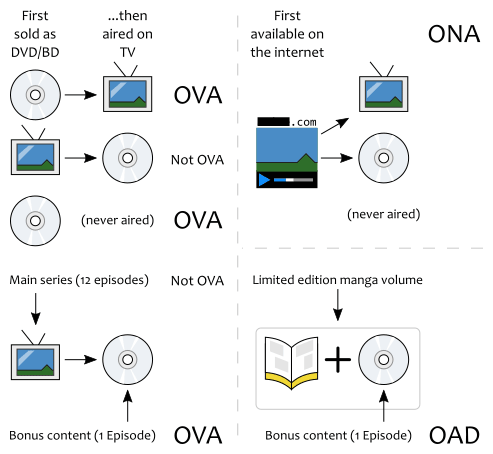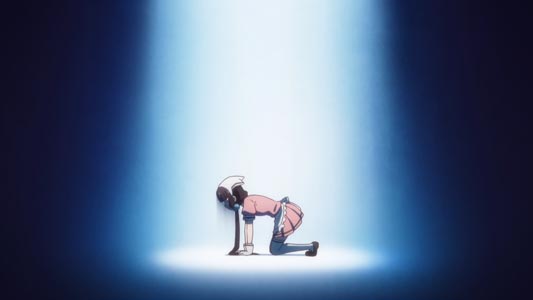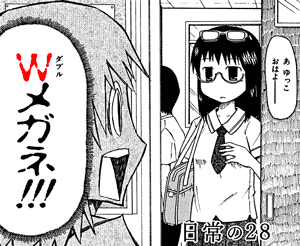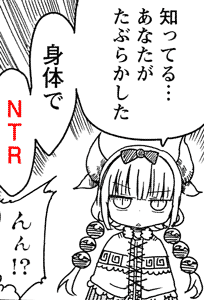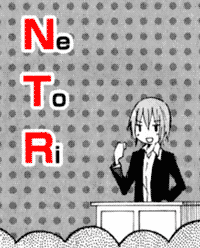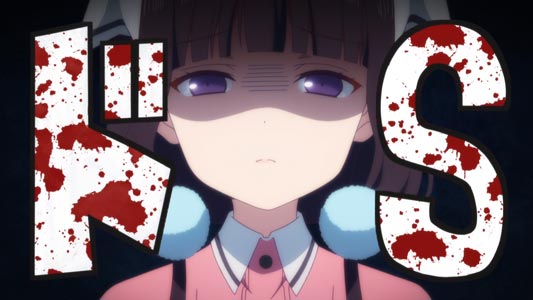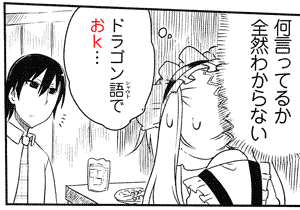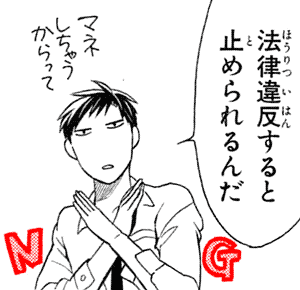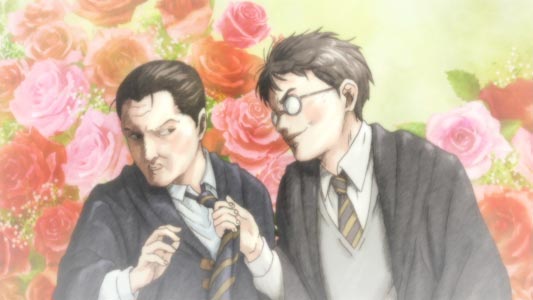In Japanese, the letter H stands for the word
ecchi エッチ, and it means something along the lines of "sex," "sexy," "sexual," or even a bit "sexually perverted."
Manga: "He is My Master," Kore ga Watashi no Goshujin-sama これが私の御主人様 (Chapter 1)
- Context: a girl doesn't like her uniform.
- nani itteru no yo
なに言ってるのよ
What are [you] saying?!
- konna ecchi na fuku wo
kiseru tsumori!?
こんなHな服着せるつもり!?
[You] intend to make [us] wear such perverted clothing!?
- senaka wa konna ni deteru shi!
背中はこんなに出てるし!
The back is getting out this much!
- sukaato wa chou mijikai shi!!
スカートは超短いし!!
The skirt is super short!!
So the name of the manga and anime
B-gata H-kei B型H系, for example, would mean "[blood] type B, perverted (
ecchi) type [of character]." (in this case,
B-gata refers to a superstition about personality, where people with type B blood are creative and cheerful, but irresponsible and impatient)
As for why H means
ecchi, it's because the name of the letter H in English is "aitch." And when "aitch" is
katakanized, it becomes
ecchi.
It's originally the reverse: the word
ecchi is the one that comes from the letter H. And it comes from the letter H because it's the first letter in the
romaji of the word
hentai 変態, which's used to call someone a "pervert," among other things.

